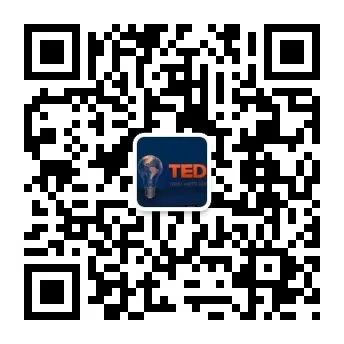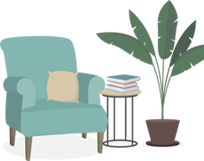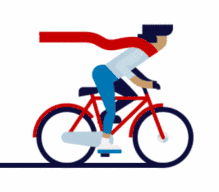これは、社会的なソフトウェアは、私たちの時間のほとんどを取り、携帯電話は、最初のツールから生活の不可欠な一部になったことを認めなければならない。 私たちは退屈をますます恐れていますが、退屈は脳と身体に休息を与える時間であり、単に空っぽであっても、活気に満ちたソーシャルネットワークよりも創造的です。
演じる話者:マヌシュ・ゾモロディ
スピーチのタイトル:退屈は、あなたの最高のアイデアをもたらす方法!
中国語と英語のスピーチ
My son and the iPhone were born three weeks apart inJune 2007. So while those early adopters were lined up outside, waiting to gettheir hands on this amazing new gadget, I was stuck at home with my hands fullof something else that was sending out constant notifications --
私の息子の誕生日とiPhoneの誕生は、わずか3週間、2007年6月だった。 だから、トレンドを追いかける人々が外に並んで、この魔法の新しいおもちゃを手に入れ始めるのを待っている間、私は家に閉じ込められ、プッシュ通知を止め続ける別のものの世話をするのに忙しいです。a miserable, colicky baby who would only sleep in amoving stroller with complete silence. I literally was walking 10 to 15 miles aday, and the baby weight came off. That part was great.痛みを伴う泣き声の赤ちゃんは、ベビーカーに押された時だけ静かに眠りに落ちる。 私は一日に10〜15マイルを歩き、その後、赤ちゃんを産むのに体重が減ります。 それは良いことだ。But man, was I bored. Before motherhood, I had beena journalist who rushed off when the Concorde crashed. I was one of the first peopleinto Belgrade when there was a revolution in Serbia. Now, I was exhausted. Thiswalking went on for weeks. It was only until about three months in thatsomething shifted, though. As I pounded the pavement, my mind started towander, too. I began imagining what I would do when I finally did sleep again.しかし、してください、私はとても退屈だ。 母親になる前はジャーナリストで、コンコルドが墜落した現場に急行しました。 セルビアで革命が勃発したとき、私はベオグラードに入った最初の人の一人でした。 しかし、今、私は疲れています。 私は何週間もそうしてきた。 しかし、約3ヶ月後、何かが変わりました。 歩道を一歩踏み出すにつれ、私の心も歩き始めた。 やっとぐっすり眠れたらどうするか想像し始めた。So the colic did fade, and I finally got an iPhoneand I put all those hours of wandering into action. I created my dream jobhosting a public radio show. So there was no more rushing off to war zones, butthanks to my new smartphone, I could be a mother and a journalist. I could beon the playground and on Twitter at the same time. Yeah, well, when I thoughtthat, when the technology came in and took over, that is when I hit a wall.だから、痛みは最終的に沈静化し、私は最終的にiPhoneを取得し、長い間、思考の散歩を現実にしました。 私は公共ラジオ番組をホストし、自分の夢の仕事を作成しました。 私は再び戦争の場所に突入する必要はありませんが、私の新しいスマートフォンで、私は母親と同時にジャーナリストとして機能することができます。 遊び場で遊んでいる間、私はさえずりを見ることができます。 テクノロジーが人間に取って代わったとき、私はどこでも壁にぶつかると思いました。So, I want you to picture this: you host a podcast,and you have to prove that the investment of precious public radio dollars inyou is worth it. My goal was to increase my audience size tenfold. So one day,I sat down to brainstorm, as you do, and I came up barren. This was differentthan writer's block, right? It wasn't like there was something there waiting tobe unearthed. There was just nothing.私はあなたが想像することを願っています:あなたはショーをホストし、あなたが得る貴重な公共放送への投資が価値があることを証明する必要があります。 私の目標は、リスナーを10倍に増やすことです。 だから、ある日、私はあなたと同じ方法を見つけ、私は何も考えていなかった。 作家のヴィンスの枯渇とは違いますね。 発見されるのを待っているような障害ではなく、何もありません。And so I started to think back: When was the lasttime I actually had a good idea? Yeah, it was when I was pushing that damnstroller. Now all the cracks in my day were filled with phone time. I checkedthe headlines while I waited for my latte. I updated my calendar while I wassitting on the couch.だから、私は振り返り始めた:私は最後に良いアイデアを思い付いたのはいつでしたか? はい、私はまだ壊れたベビーカーを押している時です。 今、私は携帯電話で毎日すべてのギャップを占有しています。 ラテを待ちながら見出しを見た。 ソファに座っている間、カレンダーを更新します。Texting turned every spare moment into a chance toshow to my coworkers and my dear husband what a responsive person I was, or atleast it was a chance to find another perfect couch for my page on Pinterest. Irealized that I was never bored. And anyway, don't only boring people getbored?テキストメッセージは、同僚と私の愛する夫に私のタイムリーな応答を証明する機会、または少なくともPinterestページをめくる別の快適なソファを見つける機会にすべての自由な時間を回しました。 私は退屈を感じなかった。 しかし、退屈な人だけが退屈するのではないですか?But then I started to wonder: What actually happensto us when we get bored? Or, more importantly: What happens to us if we neverget bored? And what could happen if we got rid of this human emotion entirely?I started talking to neuroscientists and cognitive psychologists, and what theytold me was fascinating. しかし、私は好奇心をそそる:私たちは退屈しているときに何が起こったのか? さらに重要なことに、私たちは決して退屈しませんか? 退屈という人間の感情を 完全に捨てたのか? 私は神経科学者や認知心理学者とコミュニケーションを取り始めたが、彼らが私に言った事実は驚くべきものだった。It turns out that when you get bored, you ignite a networkin your brain called the "default mode." So our body, it goes onautopilot while we're folding the laundry or we're walking to work, butactually that is when our brain gets really busy. Here's boredom researcher Dr.Sandi Mann.実際にあなたが退屈しているとき、あなたの脳内の「デフォルトモード」と呼ばれるシステムが点灯します。 だから、服を畳むか、仕事に行くために歩くとき、私たちの体は自動巡航をオンにしますが、私たちの脳は非常に忙しいです。 退屈な研究者のサンディ・マン博士ですDr. Sandi Mann: Once you start daydreaming and allowyour mind to really wander, you start thinking a little bit beyond theconscious, a little bit into the subconscious, which allows sort of differentconnections to take place. It's really awesome, actually. Manoush Zomorodi:Totally awesome, right?サンディ・マン博士:空想を始め、あなたの心をさまよわせると、あなたの思考は、様々な連想が生み出され始める潜在意識に偏り、明快な意識から少し逸脱します。 これは、実際には非常に素晴らしいです。 マヌシュ・ゾモロディ: すごいでしょ?So this is my brain in an fMRI, and I learned thatin the default mode is when we connect disparate ideas, we solve some of ourmost nagging problems, and we do something called "autobiographicalplanning." This is when we look back at our lives, we take note of the bigmoments, we create a personal narrative, and then we set goals and we figure outwhat steps we need to take to reach them. But now we chill out on the couchalso while updating a Google Doc or replying to email. We call it "gettingshit done," but here's what neuroscientist Dr. Daniel Levitin says we'reactually doing.これは私の脳が機能的磁気共鳴画像法でどのように見えるかです。 私たちは、デフォルトのパターンで無関係なアイデアをリンクしている見つけました。 私たちは、最も厄介な問題のいくつかを解決し、我々はまた、自伝的計画と呼ばれるものを作った。 私たちは人生を振り返り、重要な瞬間を記録し、ナレーションを書きます。 そして、目標を設定し、それを達成するために、各ステップで何をすべきかを考えます。 しかし、今、私たちはソファに横たわって、Googleドキュメントを更新したり、メールに返信しています。 これを「やり終わり」と呼び、神経科学者のダニエル・レヴィティン博士が言うように、私たちがやっていることは、実際にはそうではありません。Dr. Daniel Levitin: Every time you shift your attentionfrom one thing to another, the brain has to engage a neurochemical switch thatuses up nutrients in the brain to accomplish that. So if you're attempting tomultitask, you know, doing four or five things at once, you're not actuallydoing four or five things at once, because the brain doesn't work that way.Instead, you're rapidly shifting from one thing to the next, depleting neuralresources as you go.ダニエル・レヴィティン博士:あるものから別のものに注意を移すたびに、脳は神経化学を変換し、脳が保管する栄養素を消費する必要があります。 だから、複数のタスクを同時に処理したい場合は、あなたの脳がそうではないので、あなたは本当に同時に4または5つのことをしません。 神経エネルギーを使い果たしながら、この1つから次のものに急速に変化しています。MZ: So switch, switch, switch, you're using glucose,glucose, glucose.DL: Exactly right, and we have a limited supply ofthat stuff.MZ: 変換、変換、および変換は、砂糖、砂糖、または砂糖を消費しています。DL:それは完全に正しいです、そして、私たちが提供できる砂糖は限られています。MZ: A decade ago, we shifted our attention at workevery three minutes. Now we do it every 45 seconds, and we do it all day long.The average person checks email 74 times a day, and switches tasks on theircomputer 566 times a day. I discovered all this talking to professor ofinformatics, Dr. Gloria Mark.MZ:10年前、私たちは仕事中に3分ごとに集中力を入り戻しました。 今、私たちは45秒ごとに変換し、我々は一日中それをやっています。 平均的な人は 1 日に平均 74 回電子メールをチェックし、PC では 1 日あたり最大 566 のタスクを切り替えます。 これは私が情報の専門家と話をしている間に私が見つけたものです。 グロリア・マーク博士Dr. Gloria Mark: So we find that when people arestressed, they tend to shift their attention more rapidly. We also found,strangely enough, that the shorter the amount of sleep that a person gets, themore likely they are to check Facebook. So we're in this vicious, habitualcycle.グロリア・マーク博士: ストレスがたまっていますが、ストレスがたまっています。 同時に、睡眠時間が短いほど、Facebookのダイナミクスをチェックする方が簡単であるのは奇妙です。 だから我々は、この当たり前の悪循環にいます。MZ: But could this cycle be broken? What wouldhappen if we broke this vicious cycle? Maybe my listeners could help me findout. What if we reclaimed those cracks in our day? Could it help us jump-startour creativity? We called the project "Bored and Brilliant." And Iexpected, you know, a couple hundred people to play along, but thousands ofpeople started signing up. And they told me the reason they were doing it wasbecause they were worried that their relationship with their phone had grownkind of ... "codependent," shall we say.MZ:しかし、どのように我々はこのサイクルを破るのですか? ループを断ち切るとどうなりますか? 私の聴衆は、私が答えを見つけるのを助けることができます。 ギャップタイムを取り戻したら? これは、創造性を開くのに役立ちますか? 私たちはこれを「退屈で美しい」プロジェクトと呼ぶ。 私は何百人もの人々が参加することを期待していましたが、何千人もの人々がサインアップし始めた。 彼らは、彼らが携帯電話との関係が「相互依存」になるのを恐れたので、彼らはそうしていると私に言いました。Man: The relationship between a baby and its teddybear or a baby and its binky or a baby that wants its mother's cradle when it'sdone with being held by a stranger -- that's the relationship between me and myphone.男:この赤ちゃんとテディベアの関係、または赤ちゃんと彼のポケットドラゴン、または母親が見知らぬ人に抱かれて退屈している赤ちゃん。 これは、携帯電話と私の関係です。Woman: I think of my phone like a power tool:extremely useful, but dangerous if I'm not handling it properly.Woman 2: If I don't pay close attention, I'llsuddenly realize that I've lost an hour of time doing something totallymindless.女性:私は強力なツールとして自分の携帯電話を参照してください:非常に便利ですが、私は誤ってそれを使用する場合、それは非常に危険です。女性2:私が注意を払わなれば、私は突然、私は完全に頭の悪いことをするために1時間を失っているのに気がつきます。MZ: OK, but to really measure any improvement, weneeded data, right? Because that's what we do these days. So we partnered withsome apps that would measure how much time we were spending every day on ourphone. If you're thinking it's ironic that I asked people to download anotherapp so that they would spend less time on their phones: yeah, but you gottameet people where they are.MZ:はい、しかし、任意の進捗状況を測定するために、我々は右、データが必要ですか? なぜなら、私たちは今それをしているからです。 私たちは、私たちが毎日電話に費やす時間を計算するために、いくつかのアプリケーションと協力しています。 皮肉なことに、私は人々が携帯電話で遊ぶ時間を減らすために別のプログラムをダウンロードできるようにしました:はい、しかし、あなたは最初に彼らの状況を見る必要があります。So before challenge week, we were averaging twohours a day on our phones and 60 pickups, you know, like, a quick check, did Iget a new email? Here's what Tina, a student at Bard College, discovered aboutherself.だから、チャレンジウィークが始まる前に、我々は携帯電話で1日平均2時間だけでなく、60のチェックを費やして、このように、簡単に見て、私は新しいメールを持っていますか? これはティナ、バドカレッジの学生が彼女自身の発見です。Tina: So far, I've been spending between 150 and 200minutes on my phone per day, and I've been picking up my phone 70 to 100 timesper day. And it's really concerning, because that's so much time that I couldhave spent doing something more productive, more creative, more towards myself,because when I'm on my phone, I'm not doing anything important.ティナ:これまでのところ、私は携帯電話で1日150〜200分を費やしてきた、と私は70〜100回、毎日携帯電話を拾う。 私は携帯電話を見ている間、私は重要な何もしていたので、私はより効率的で、より創造的で、より有利なことをするために使用することができるので、これは本当に心配です。MZ: Like Tina, people were starting to observe theirown behavior. They were getting ready for challenge week. And that Monday, theystarted to wake up to instructions in their inbox, an experiment to try.MZ:ティナのように、人々は自分の行動を見始めます。 彼らはゆっくりとチャレンジウィークの準備ができています。 その月曜日から、彼らは実験を完了しようとして受信トレイに指示を受け始めた。Day one: "Put it in your pocket." Takethat phone out of your hand. See if you can eliminate the reflex to check itall day long, just for a day. And if this sounds easy, you haven't tried it.Here's listener Amanda Itzko.初日:"あなたのポケットに携帯電話を入れてください。 「携帯電話を手から奪う。 一日中携帯電話の状態の反射を見て停止することができるかどうかを確認してください, でも、一日. それが簡単に聞こえる場合は、試してみると知っている。 これはアマンダ・Itzkoが言ったことです。Amanda Itzko: I am absolutely itching. I feel alittle bit crazy, because I have noticed that I pick up my phone when I'm justwalking from one room to another, getting on the elevator, and even -- and thisis the part that I am really embarrassed to actually say out loud -- in thecar.アマンダ・Itzko: かゆいです。 私は、ある部屋から別の部屋まで歩いて、携帯電話を拾って、エレベーターに乗るとき、あるいは車の中で、とても恥ずかしいことを言っているのを見つけたので、少し気が狂っているような気がします。MZ: Yikes. Yeah, well, but as Amanda learned, thisitching feeling is not actually her fault. That is exactly the behavior thatthe technology is built to trigger. I mean, right? Here's former Googledesigner, Tristan Harris.MZ:その正しい。 はい、しかし、アマンダが発見したように、このかゆみの感覚は彼女のせいではありません。 テクノロジーが生み出されたときに 刺激したいのは まさにそのものです その通りだろ? これは、元Googleデザイナーのトリスタンハリスの言葉です。Tristan Harris: If I'm Facebook or I'm Netflix orI'm Snapchat, I have literally a thousand engineers whose job is to get moreattention from you. I'm very good at this, and I don't want you to ever stop.And you know, the CEO of Netflix recently said, "Our biggest competitorsare Facebook, YouTube and sleep." I mean, so there's a million places tospend your attention, but there's a war going on to get it.トリスタン・ハリス:もし私がフェイスブック、ネットフリックス、Snapchatだったら、1000人のエンジニアを雇い、もっと注目を集めるのが仕事です。 私はそれで非常に良いですし、私はすべてで停止する必要はありません。 最近、Netflixの最高経営責任者(CEO)は、「私たちの最大の競争相手はFacebook、YouTube、睡眠です。 "だから、あなたの注意を置く場所の数千を持っているが、あなたの注意を得するために、戦争が進行中です。MZ: I mean, you know the feeling: that amazingepisode of "Transparent" ends, and then the next one starts playingso you're like, eh, OK fine, I'll just stay up and watch it. Or the LinkedInprogress bar says you are this close to having the perfect profile, so you adda little more personal information. As one UX designer told me, the only peoplewho refer to their customers as "users" are drug dealers andtechnologists.MZ:つまり、あなたはその気持ちを知っている:素晴らしい「透明な家族」のエピソードは終わり、次のエピソードは再び再生されますので、あなたは、ええと、まあ、私は滞在し、それを見てみましょう。 またはLinkedInのプログレスバーは、あなたが完璧なプロフィールから一歩離れていて、その後、少し個人情報を追加していることを伝えます。 ユーザー エクスペリエンス デザイナーが私に言ったように、顧客を "ユーザー" と呼ぶ人は、麻薬密売人以外の技術者です。And users, as we know, are worth a lot of money.Here's former Facebook product manager and author, Antonio García Martínez.そして、ユーザーは、私たちが知っているように、たくさんのお金の価値があります。 元Facebookプロダクトマネージャーで作家の アントニオ・ガルシア・マルティネスですAntonio García Martínez: The saying is, if anyproduct is free then you're the product; your attention is the product. Butwhat is your attention worth? That's why literally every time you load a page,not just on Facebook or any app, there's an auction being held instantly,billions of times a day, for exactly how much that one ad impression cost.アントニオ・ガルシア・マルティネス: さわやか、もし何か無料なら、あなたはその製品です。 しかし、どのくらいの注意の価値がある? そのため、Facebook や他のアプリだけでなく、ページを開くたびに、1 日に数億件のオークションが行い、広告の価格に感銘を受ける可能性があります。MZ: By the way, the average person will spend twoyears of their life on Facebook. So, back to challenge week. Immediately, wesaw some creativity kick in. Here's New Yorker Lisa Alpert.MZ: ちなみ、人の人生に2年はFacebookに費やされます。 だから、チャレンジウィークについて話してください。 我々はすぐにいくつかのアイデアの出現を見た。 ニューヨーク出身のリサ・アルペルトが言ったことです。Lisa Alpert: I was bored, I guess. So I suddenlylooked at the stairway that went up to the top of the station, and I thought,you know, I had just come down that stairway, but I could go back up and thencome back down and get a little cardio. So I did, and then I had a little moretime, so I did it again and I did it again, and I did it 10 times. And I had acomplete cardio workout. I got on that R train feeling kind of exhausted, but,like, wow, that had never occurred to me. How is that possible?リサ・アルバート:私は退屈です、私は推測します。 だから、突然、駅の頂上の階段に向かって見て、私はちょうどその階段を下りたと思ったが、私は再び歩いて、少し有酸素運動を行うことができます。 私はそれをやったし、私の時間の少しを持って、私は何度も繰り返してそれをやった、私は10回行って、その後、私は完全な有酸素運動を得た。 私はR列車に乗って少し疲れを感じたが、うわー、私は前に行ったことがない。 どのようにそれは可能ですか?MZ: So creativity, I learned, means different thingsto different people.MZ:だから、創造性は、私は異なる人々のために異なる意味を持っている見つけた。But everyone found day three's challenge thehardest. It was called "Delete that app." Take that app -- you knowthe one; that one that always gets you, it sucks you in -- take it off yourphone, even if just for the day. I deleted the game Two Dots and nearly cried.しかし、誰もが3日目の挑戦が最も難しいと感じています。 この課題は、アプリの削除と呼ばれています。 そのアプリを取る - あなたが知っている、それは常にあなたを惹きつけ、あなたを吸い込むもの - その日であっても、携帯電話からそれを削除します。 私は2つのポイントの間にゲームを削除し、ほとんど叫んだ。Yeah, Two Dots players know what I'm talking about.But my misery had good company.はい、2つのポイントの間のプレーヤーは私が述べていることを知っている。 しかし、私の痛みは、誰かが同行しています。Man 2: This is Liam in Los Angeles, and I deletedTwitter, Facebook, Instagram, Tumblr, Snapchat and Vine from my phone in onefell swoop. And it was kind of an embarrassingly emotional experience at first.It felt weirdly lonely to look at that lock screen with no new notifications onit. But I really liked deciding for myself when to think about or access mysocial networks, not giving my phone the power to decide that for me. So thankyou.男2:私はロサンゼルス出身のリアムです。 私はTwitter、Facebook、Instagram、Tumblr、Snapchat、Vineを携帯電話から削除しました。 最初は恥ずかしい感情的な経験でした。 私は、どんな新しい通知もなしでロック画面が奇妙に孤独に感じるのを見ました。 しかし、私は自分の携帯電話に権利を与えるのではなく、いつ考え、私のソーシャルネットワークを見に行くかを決めるのが楽しきです。 だからみんなに感謝します。Woman 3: Deleting the Twitter app was very sad, andI feel I maybe, over the last year when I've been on Twitter, have developed anaddiction to it, and this "Bored and Brilliant" challenge has reallymade me realize it. After a brief period of really horrible withdrawal feeling,like lack-of-caffeine headache, I now feel lovely. I had a lovely dinner withmy family, and I hope to continue this structured use of these powerful tools.女性3:Twitterのアプリを削除すると、私はおそらく、過去1年間のTwitterの使用は、中毒に発展し、この"退屈で素晴らしい"挑戦は本当に私がこれを発見した感じ悲しいです。 痛みを伴う撤退の短い期間の後、カフェインのない頭痛のように、私は今素晴らしい感じ。 私は家族と一緒においしい夕食を持っていたし、私はこれらの強力なツールをこのように組織的に使用し続けることを願っています。Woman 4: I don't have that guilty gut feeling I havewhen I know I'm wasting time on my phone. Maybe I'll have to start givingmyself challenges and reminders like this every morning.女性4:私は罪悪感のその感覚を持っていない、それは私が携帯電話で私の時間を無駄に見つけたときです。 おそらく、私は早朝に自分自身にいくつかのこのような課題とリマインダーを与え始める必要があります。MZ: I mean, yes, this was progress. I could not waitto see what the numbers said at the end of that week. But when the data camein, it turned out that we had cut down, on average, just six minutes -- from120 minutes a day on our phones to 114. Yeah. Whoop-de-do.MZ:はい、それは進歩です。 私は、週の終わりにデータがどのようなものかを確認するために待つ必要はありません。 しかし、データを受け取ったとき、私たちは平均して、携帯電話で1日120分から114分まで、わずか6分しか減少しなかったとわかりました。 はい、なんてこと。So I went back to the scientists feeling kind oflow, and they just laughed at me, and they said, you know, changing people'sbehavior in such a short time period was ridiculously ambitious, and actuallywhat you've achieved is far beyond what we thought possible. Because moreimportant than the numbers, were the people's stories. They felt empowered.Their phones had been transformed from taskmasters back into tools.だから、私は少し落ち込み、科学者に行き、彼らは私を笑った。 彼らは、人々の行動を変えるのは、このような短い時間で愚かな野望であり、あなたが達成した成果は、私たちが想像するよりもはるかに大きいと言いました。 なぜなら、データよりも重要なのは、人々自身の物語であるからです。 彼らは力を与えられたと感じた。 彼らの携帯電話は、タスク監督者からツールに戻ります。And actually, I found what the young people saidmost intriguing. Some of them told me that they didn't recognize some of theemotions that they felt during challenge week, because, if you think about it,if you have never known life without connectivity, you may never haveexperienced boredom. And there could be consequences. Researchers at USC havefound -- they're studying teenagers who are on social media while they'retalking to their friends or they're doing homework,実際、私は若者が言うことを最も興味深いものにしました。 一部の若者は、チャレンジウィーク中に感じる感情が何であるかを知らないと私に言いました。 あなたがそう考えるなら、あなたは社会的な接続を失う生活を持っていたことがない場合は、退屈を経験したことがない可能性がありますので。 そして、それは私たちの次の試合になる可能性があります。 南カリフォルニア大学の研究者は、彼らが友人と話している間、ソーシャルソフトウェアを見て、宿題をするとき、彼らはいくつかのティーンエイジャーを研究していることを発見しました。and two years down the road, they are less creativeand imaginative about their own personal futures and about solving societalproblems, like violence in their neighborhoods. And we really need this nextgeneration to be able to focus on some big problems: climate change, economicdisparity, massive cultural differences. No wonder CEOs in an IBM surveyidentified creativity as the number one leadership competency.このように2年後、彼らは皆、自分の将来、創造性と想像力の欠如、そして近所の暴力などの社会問題を解決する能力に欠けています。 気候変動、経済格差、大きな文化の違いなど、いくつかの重要な問題に集中できる次世代が必要です。 IBM が調査した CEO が、創造性をリーダーシップの第一の競争力と見なしているのも不思議ではありません。OK, here's the good news, though: In the end, 20,000people did "Bored and Brilliant" that week. Ninety percent cut downon their minutes. Seventy percent got more time to think. People told me thatthey slept better. They felt happier. My favorite note was from a guy who saidhe felt like he was waking up from a mental hibernation.しかし、良いニュースがあります:最終的には、その週の「退屈で美しい」挑戦を完了した2万人のうち、90%が携帯電話で遊ぶ時間を減らしました。 70%は考える時間が増えた。 人々は、彼らがはるかに良い睡眠を持って、彼らは幸せを感じる私に言った。 私のお気に入りのフィードバックは、彼が彼の心の冬眠から目を覚ますように感じると言う人です。Some personal data and some neuroscience gave uspermission to be offline a little bit more, and a little bit of boredom gave ussome clarity and helped some of us set some goals. I mean, maybe constantconnectivity won't be cool in a couple of years. But meanwhile, teachingpeople, especially kids, how to use technology to improve their lives and toself-regulate needs to be part of digital literacy.いくつかの個人データと神経科学は、私たちはもう少しオフラインにすることができます, 少し退屈は、私たちはより目を覚まし、私たちのいくつかは、目標を設定するのに役立ちます. つまり、おそらく継続的な連絡先は、今後数年間で人気がなくなったでしょう。 しかし、同時に、人々、特に子供たちに、テクノロジーを使用して生活の質を向上させ、自己制御を達成する方法を教えるには、デジタルリテラシーの一部である必要があります。So the next time you go to check your phone,remember that if you don't decide how you're going to use the technology, theplatforms will decide for you. And ask yourself: What am I really looking for?Because if it's to check email, that's fine -- do it and be done.だから、次回携帯電話を見に行くときは、技術を使用することを自分で決定しない場合は、技術プラットフォームがあなたのために決定を下します。 自問自答:私は正確に何を見たいですか? 私はメールをチェックする場合、それは大丈夫ですので - それは終わった。But if it's to distract yourself from doing the hardwork that comes with deeper thinking, take a break, stare out the window andknow that by doing nothing you are actually being your most productive andcreative self. It might feel weird and uncomfortable at first, but boredomtruly can lead to brilliance. Thank you.しかし、もしそれがあなた自身を一生懸命働かして気を取られるかは、もっとまじめに考えなくなくね。 リラックスして、窓の外を見て、あなたが実際に最も創造的で効率的な自分自身をやっているときに何もしないかを知る必要があります。 これは、最初は少し奇妙で不快かもしれませんが、退屈は本当に良い場所になります。 ありがとうございましたRemark:ビデオ、スピーチはTEDのウェブサイトから来て、すべての利益はTEDによって所有され、より多くのTED関連情報は、公式ウェブサイトwww.ted.comすることができます!
公開番号の後に注意を払う
右上をクリックしてください"●●●”,[スターにする] を選択します。
TEDトーク、初めて見る

One Speech A Day Makes You Better
長押しして、2 次元コードの懸念を識別します






「発見」-「見る」に移動し、「友人が見ている」を参照します。